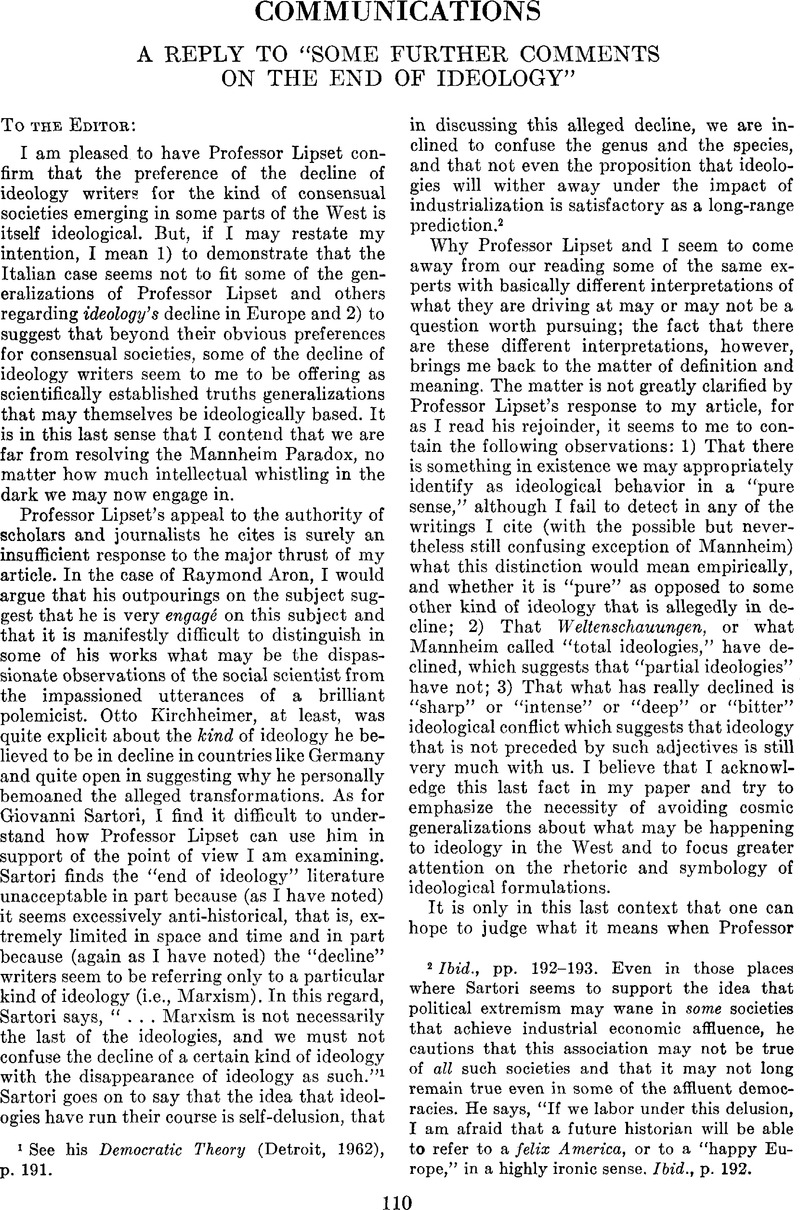No CrossRef data available.
Article contents
[no title]
Published online by Cambridge University Press: 01 August 2014
Abstract

- Type
- Letter
- Information
- Copyright
- Copyright © American Political Science Association 1966
References
1 See his Democratic Theory (Detroit, 1962), p. 191Google Scholar.
2 Ibid., pp. 192–193. Even in those places where Sartori seems to support the idea that political extremism may wane in some societies that achieve industrial economic affluence, he cautions that this association may not be true of all such societies and that it may not long remain true even in some of the affluent democracies. He says, “If we labor under this delusion, I am afraid that a future historian will be able to refer to a felix America, or to a “happy Europe,” in a highly ironic sense. Ibid., p. 192.
3 See his brilliant treatment of this in ibid., pp 455–460.Google Scholar




